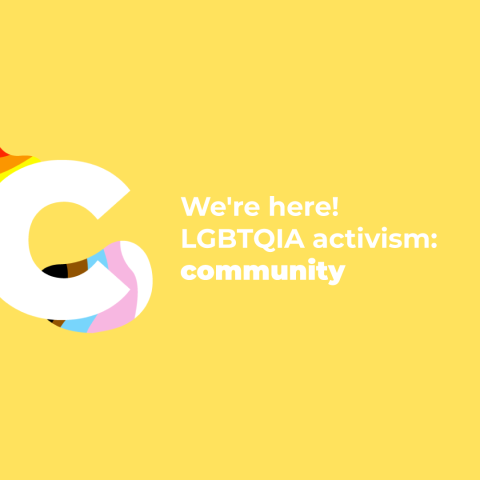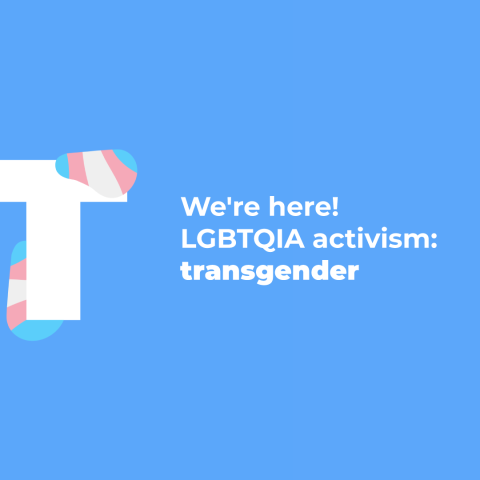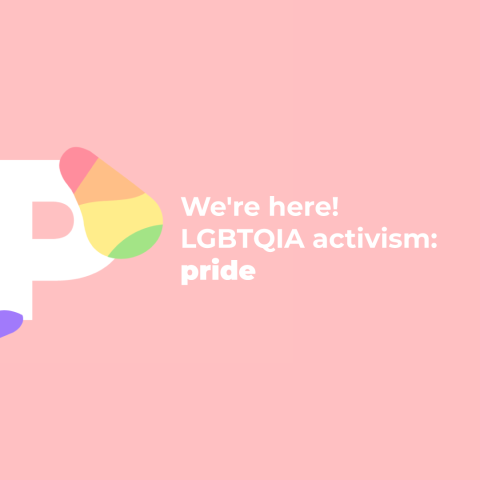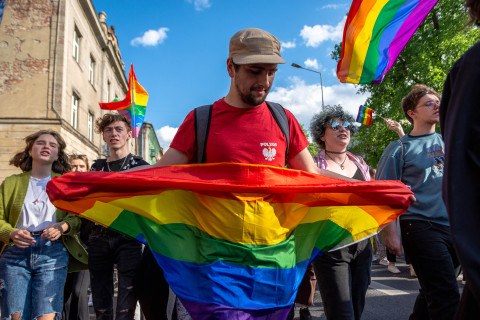LGBT community
I understand a community as a group of people with common goals, maybe not the same ones, but the goals, values and experiences that unite us. And I think that in the case of the community of non-heteronormative or transgender people, we have a lot in common and common experiences can be this bond, and I believe to some extent they are. However, I must admit that I started our conversation with the thought of how much we differ and that it would be valuable to normalise these differences, to specify what to pay attention to in terms of strengthening internal communities and micro alliances between us.
Living in this specific political and social context that we have in Poland, I believe the umbrella sheltering us is very big. It consists primarily of legal protection, protection against violence, the desire for a better life and lesser social distance, the possibility of safely pursuing one’s life needs and safe development, or building close and very close relationships. This umbrella shelters not only our community, but the whole of humanity. Let’s be honest, the need for security, love, or self-development are rather standard human needs that people are more or less aware of.
Differences
What is important to me is the normalisation of differences and seeking agreement between these differences, strengthening bonds between micro-communities. However, there are some things that differentiate us in terms of, for example, gender privileges within the community itself. There is a tendency to unify the experience, which is not true and I also think that it limits the overview and the real possibilities of mutual support. Because if we are not aware of differences, we have limited possibilities to support each other.
Diversity
I have a lot of experience working abroad, both in the countries of the so-called west and east. Over the last few years I have been working mainly in Germany, so I can say that this West German context, especially the Berlin one, is very American-symmetrical. I have an impression that if you do something in Berlin, it’s like doing it in New York at the same time. It is obvious you are not physically there, but the narratives and tendencies of social and technological innovations are similar. No matter how simple it may sound, this experience, let’s call it Western, brings a lot of kindness and gentleness. Sometimes even too much. However, the label of gentleness and looking at yourself with a more critical eye is very visible to me, especially in the context of people functioning in male roles. In my opinion, this context of masculinity is a bit more walked through there than in Poland. So for both, heterosexual cis men and homosexual cis men, this aspect of masculinity is more explored.
Burnout
I encourage people to consider the topic of activist’s exhaustion and burnout as important in their groups, workshops and organizations. And I say this because my experience of several years of work shows that people are reluctant to deal with it, collectively or individually. It is easier to prevent than to treat the effects. This is worth considering. If you feel good, this is the best time to take care of yourself so that you don’t feel worse.
Funding for “We’re here! - LGBTQIA activism in a challenging environment” is provided by the U.S. Department of State's Bureau of Educational and Cultural Affairs with Meridian International Center as the implementing partner.





